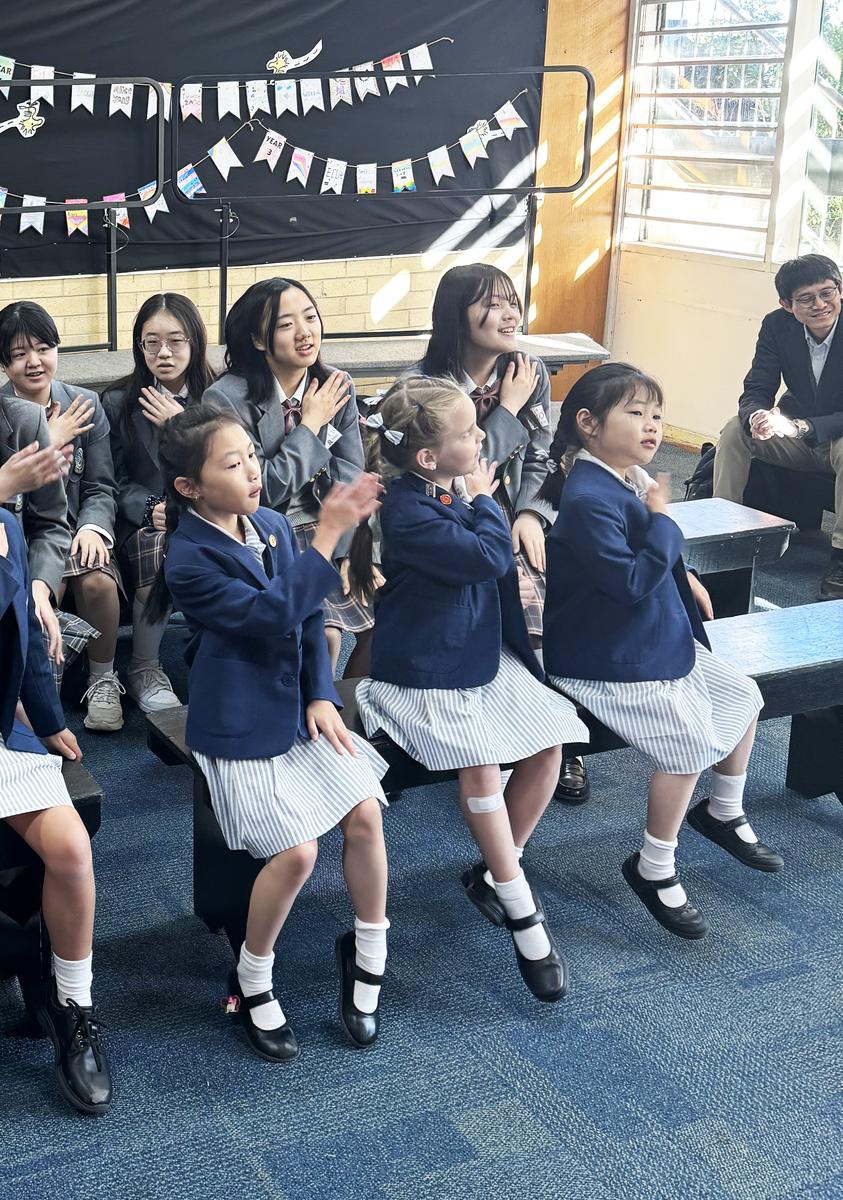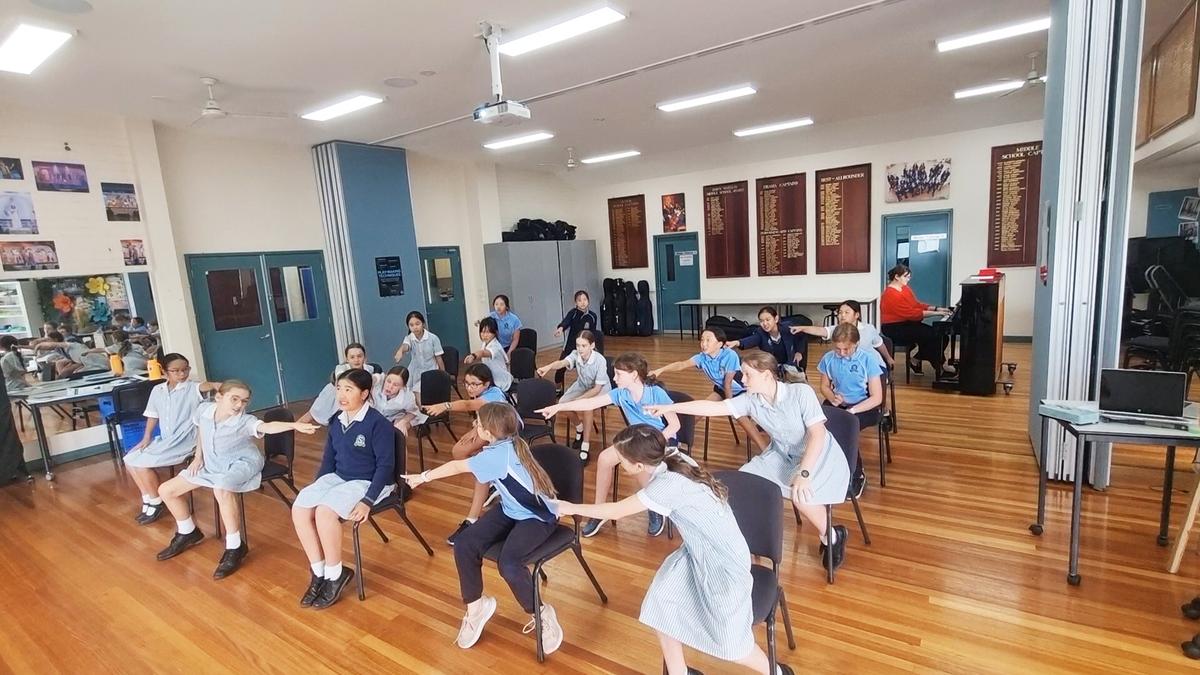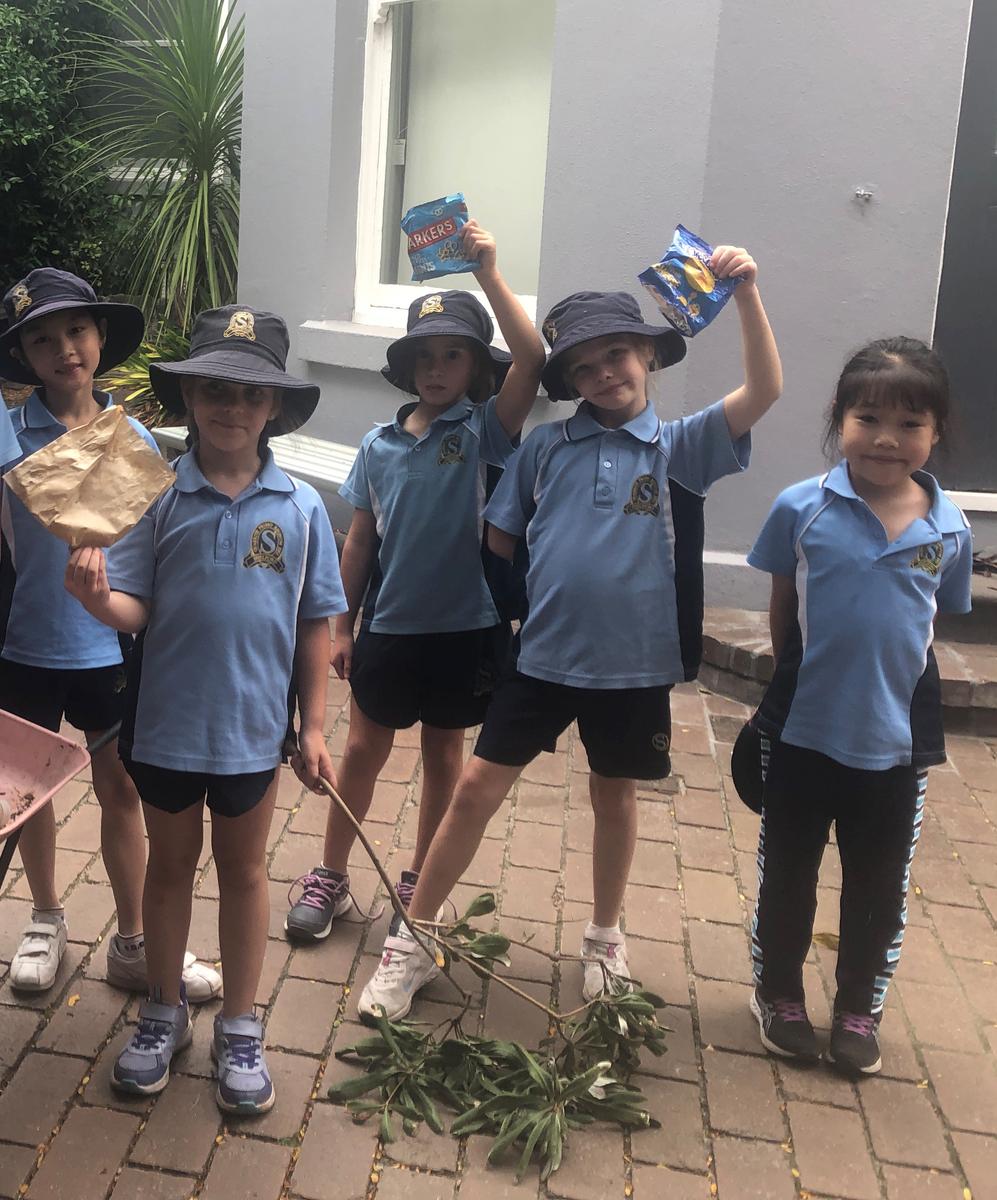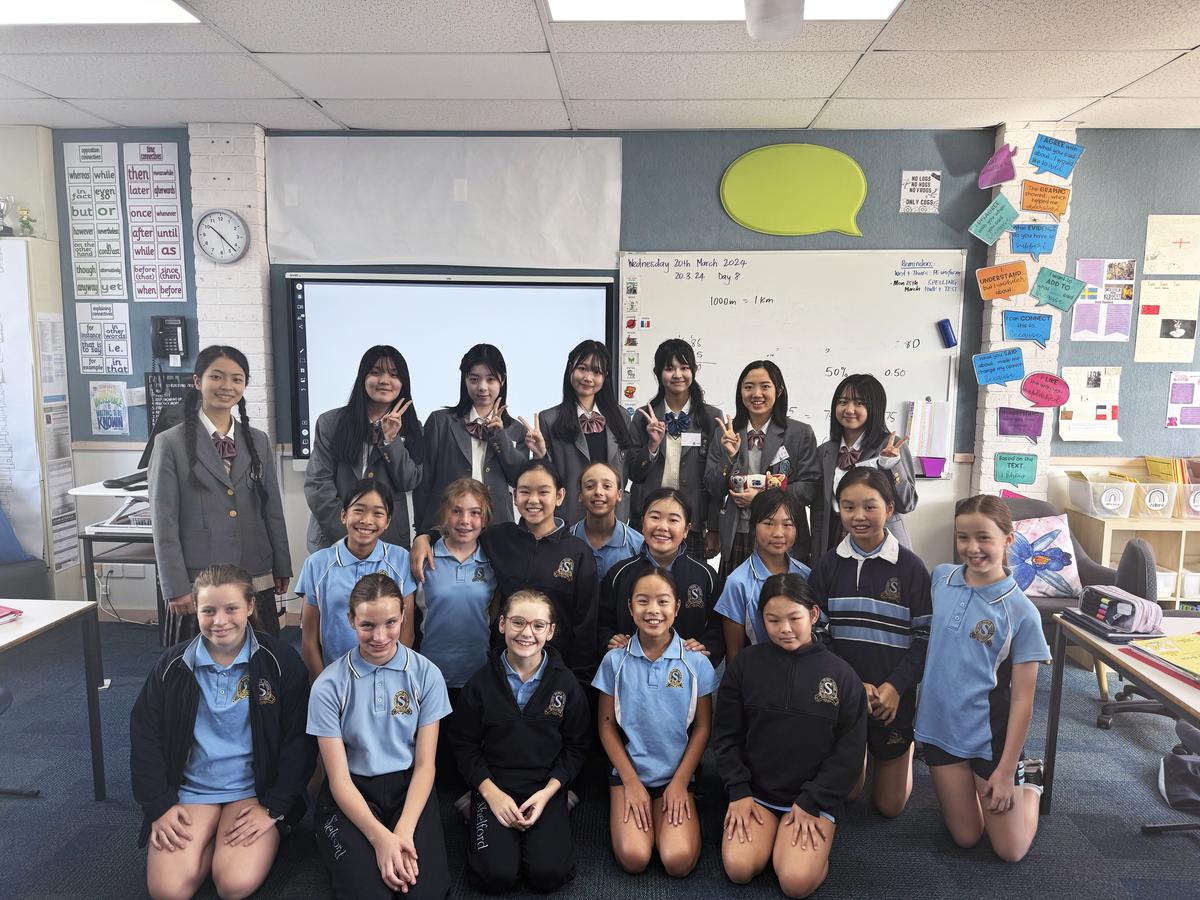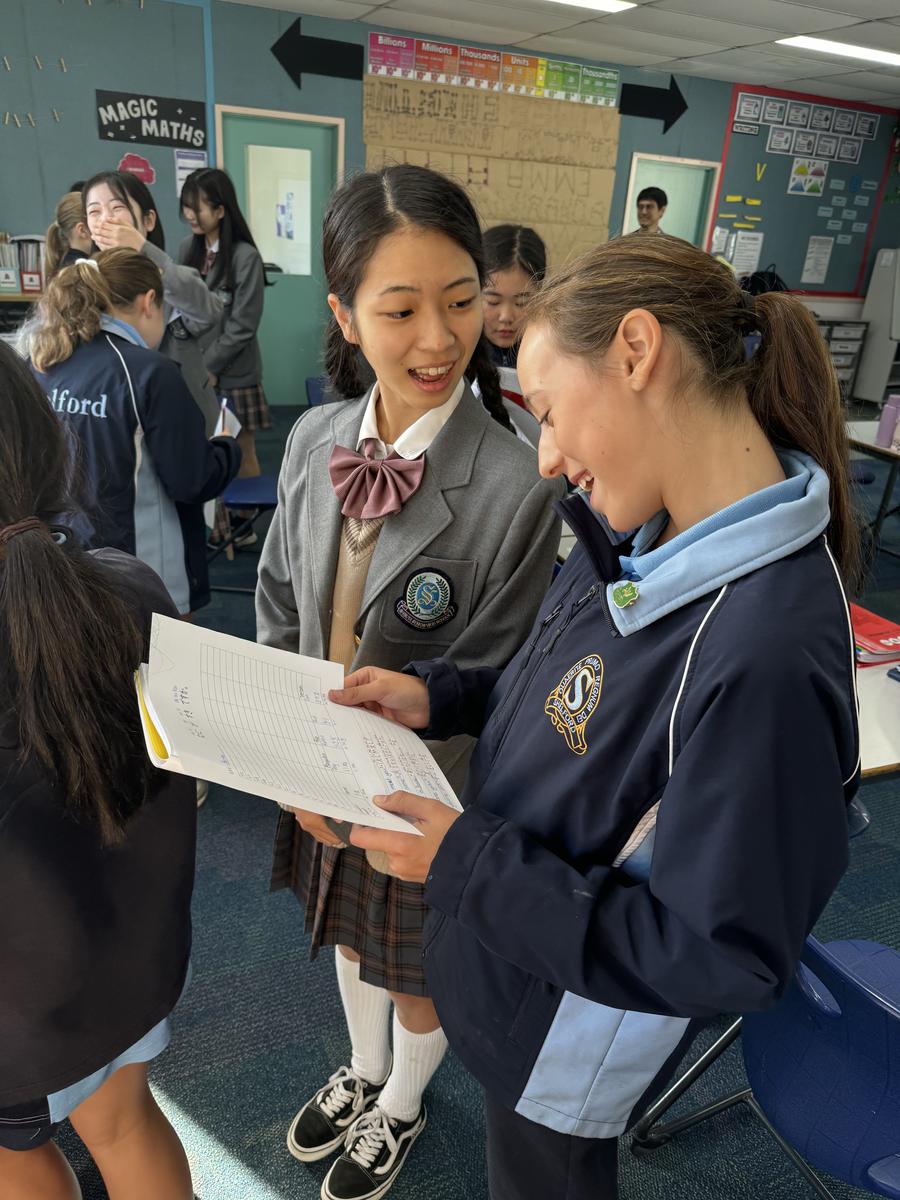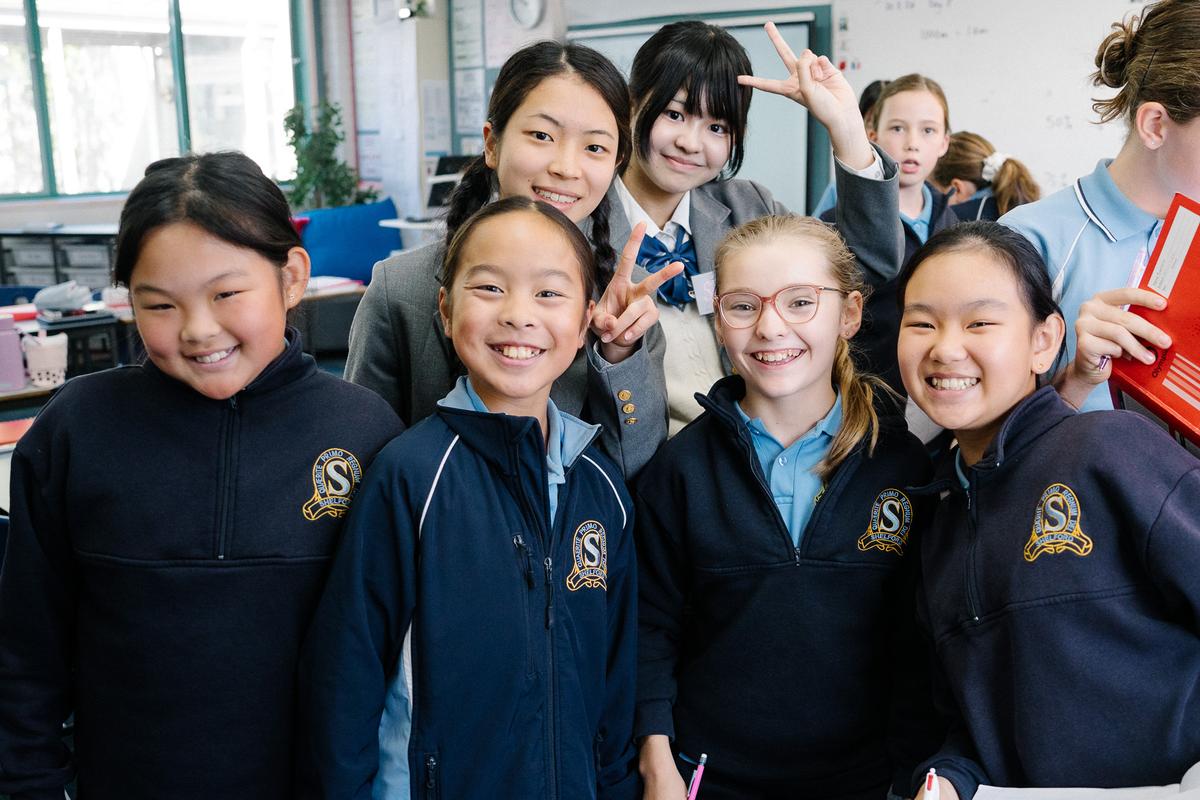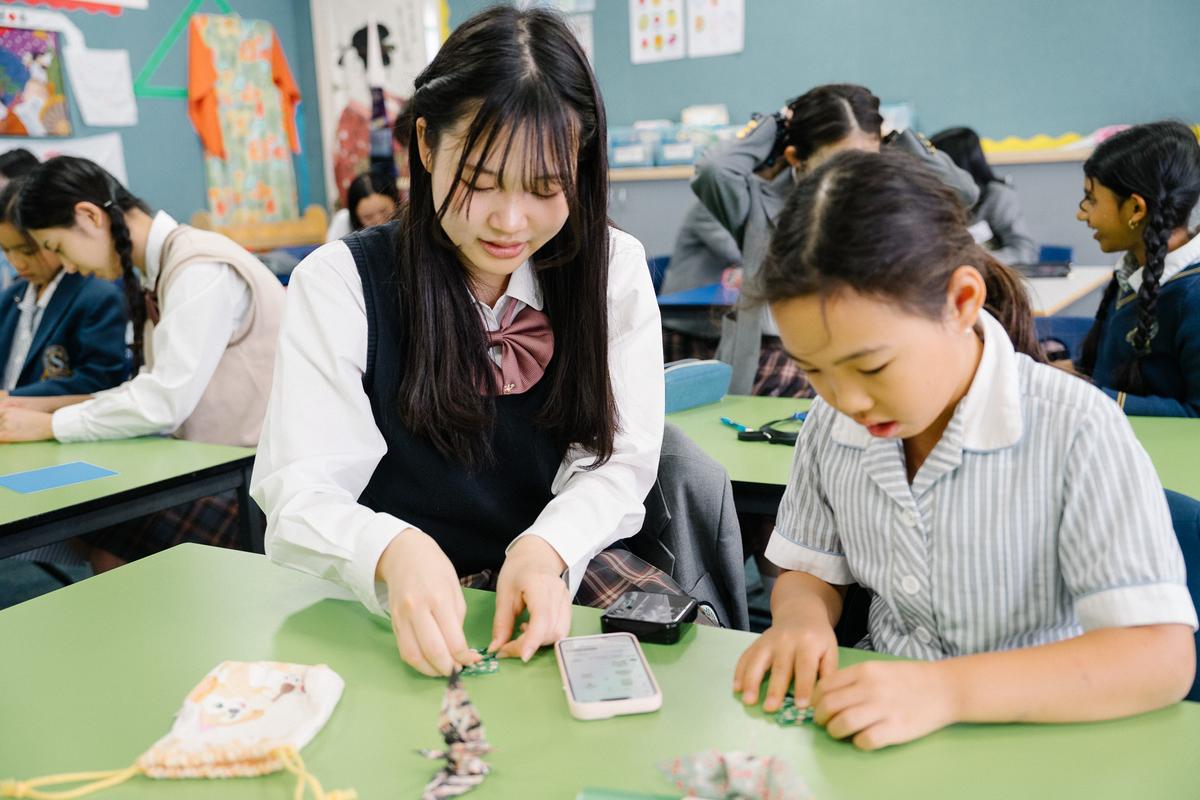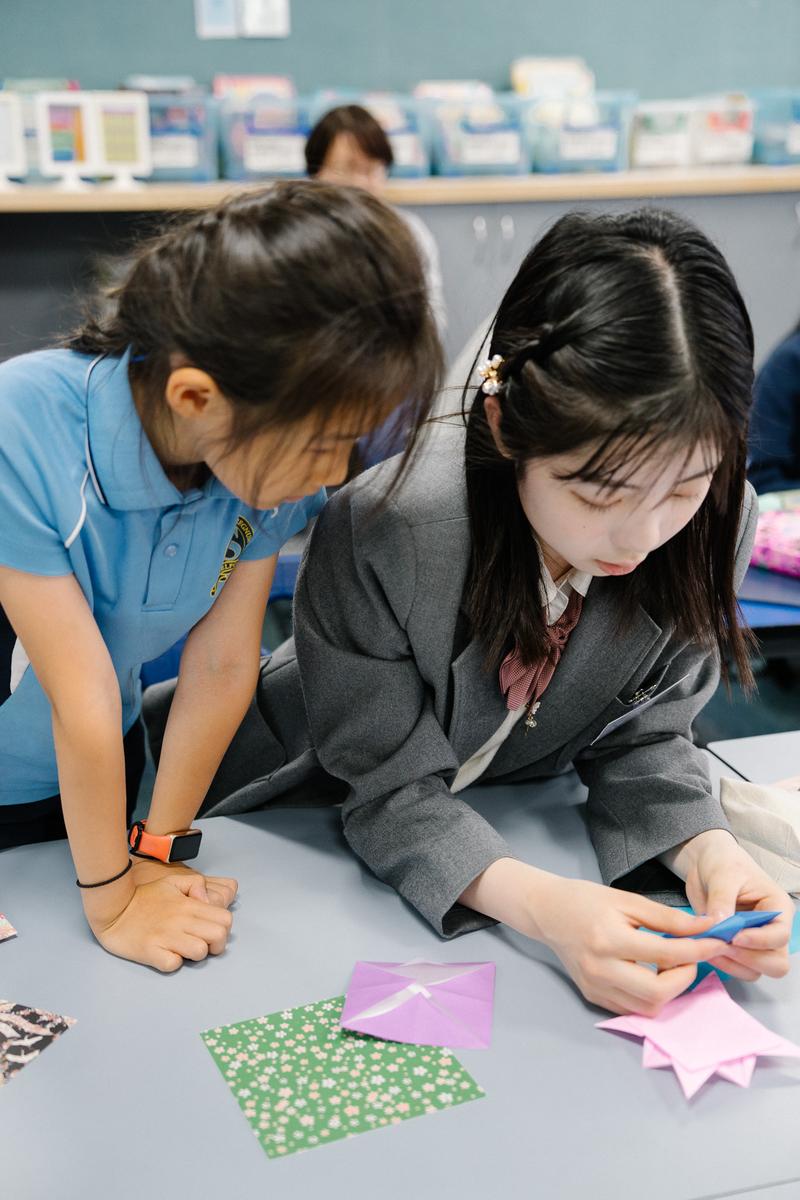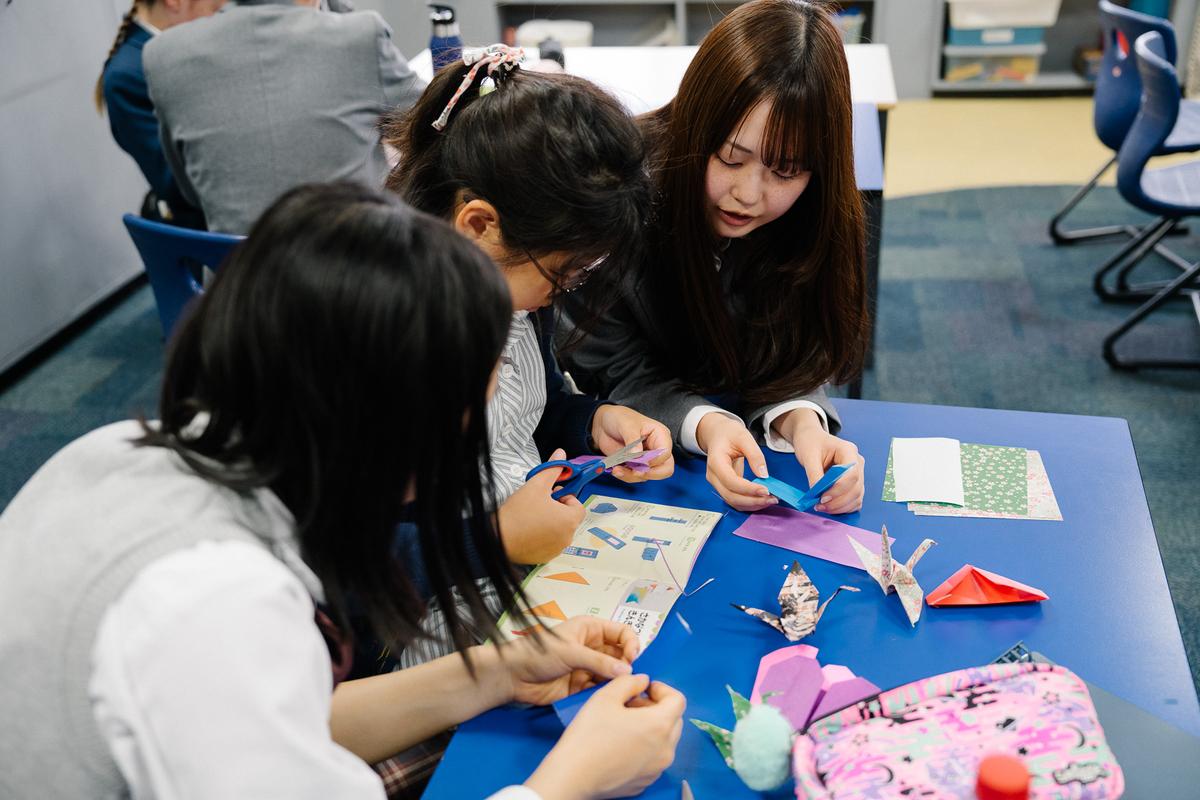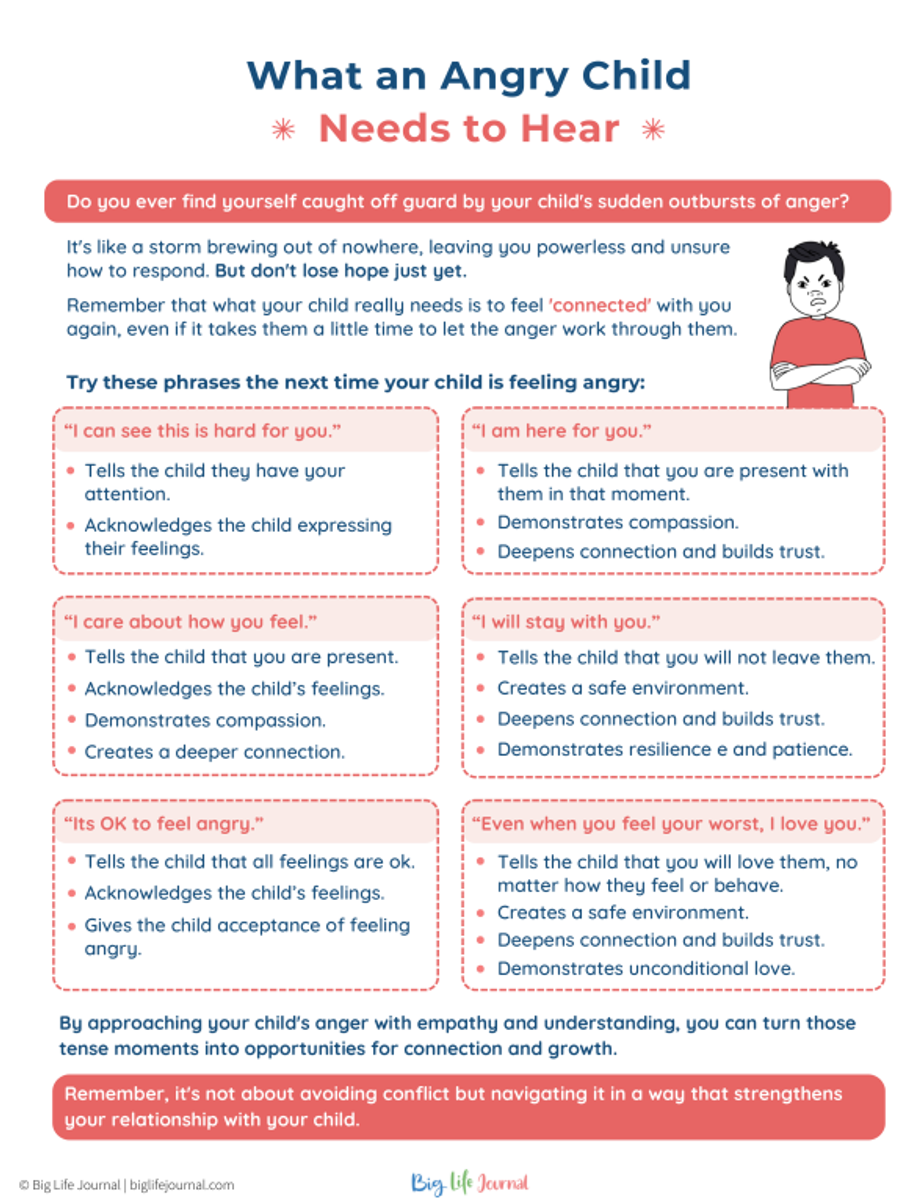Junior School Update
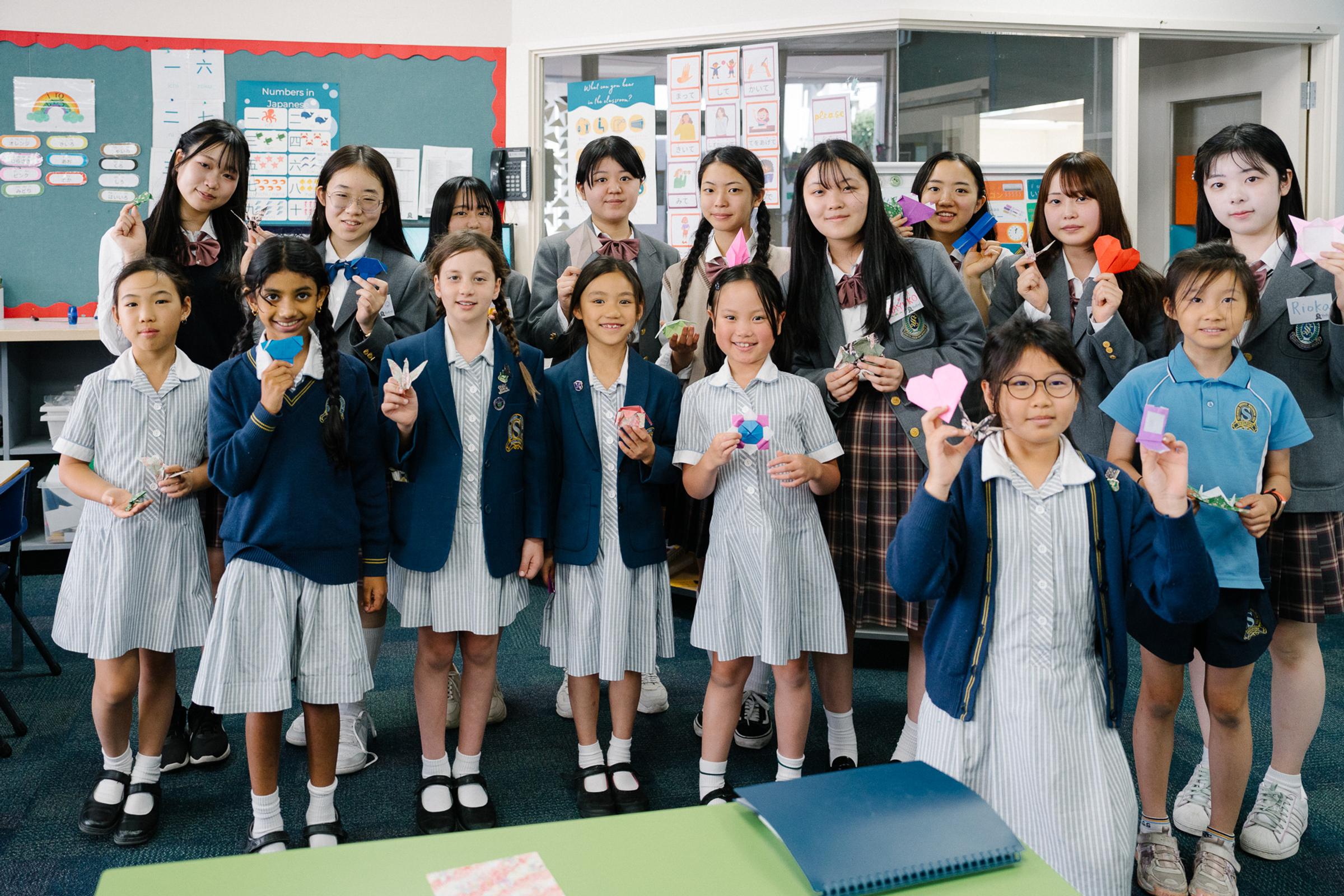
Healthy Habits
As part of our Healthy Habits unit in Year 1 and 2 Health, we have explored what habits keep our bodies healthy and strong including: exercising moderately to vigorously for 60 minutes a day, eating a healthy food plate filled with all our 5 major food groups (fruits, vegetables, grains, proteins, dairy) drinking 7 glasses of water a day, and limiting screen time. Students explored what is inside our bodies that we need to keep strong, such as bones (to which there are over 200), muscles (of which there are over 600), and nerves. Working collaboratively, students drew around their bodies and then identified where the bones, muscles and nerves might be, based on what they felt in their bodies. We then included inside our bodies, the foods which we should eat to remain strong and healthy and on the outside which foods we should eat less of.
Marvellous Music
Some wonderful music-making is happening throughout the Junior School.
Our Year 1 and 2 students have been learning about rhythm and beat through different traditional songs from Australia’s First Nation’s People: Inanay Capuana (a song in Yorta Yorta language, from the Torres Straight Islands), and Taba Naba (a song in Meriam Mir language also from the Torres Straight Islands), as well as a traditional Ghanaian song in Akan language called Obwisana. The girls have been using various hand percussion instruments such as claves, agogo bells, shakers and tambourines to demonstrate the differences between rhythm and beat.
Years 3 and 4 have commenced their string and percussion studies this term. We have a mix of students that are either continuing their instrumental studies from last year, learning a new instrument or picking one up for the first time. Over this term, students have made a great start to developing sound and technique on their instrument, and it will be exciting to see how they progress throughout the year.
Year 5 Band Program is in full swing, with students choosing to learn flute, clarinet, trumpet, or percussion. They have made a fantastic start on their new instruments, and we are looking forward to seeing them continue to build their skills.
Last week Year 6 began rehearsing one of their songs Bruce for 'Matilda Jr', and are already in the process of putting the singing together with the choreography. They have discovered singing and dancing at the same time is more challenging than it looks, but both Ms Holden and Ms McLeod are very proud of the effort and enthusiasm they have displayed thus far.
Environmental Activists
Year 1 and 2 students have shown exemplary initiative by undertaking to find and dispose of rubbish in the school grounds during their recess play times. This was entirely student-driven without any prompting and is a happy indication of how even the youngest Shelford students demonstrate integrity and proactivity.
Japanese in Year 3, 5 and 6
This term, the Year 6 students have been deepening their understanding of Japanese culture, greetings, self-introductions, likes and dislikes, as well as reading and writing the hiragana script. These students were lucky enough to have the opportunity to interview and survey the visiting Japanese exchange students from Shibuya which was a lot of fun. It was great to see our students speaking to our Japanese visitors with such confidence and excellent spoken Japanese. Even those who started at Shelford this year were excited to try speaking with our Japanese visitors and participated enthusiastically in this session.
Year 5 students are currently learning to read and write hiragana following the order of the hiragana chart, starting with the first 3 lines. They have also been learning more about the different aspects of culture to do with the daily life of school children in Japan. The students are looking forward to finishing the term with some Japanese ink painting
Sumi-e.
Our Year 3 students are learning one stroke hiragana, greetings and basic self-introductions this term. On Wednesday 20 of March, the girls eagerly met and interacted with our Japanese visitors. They did origami and played some games where they were required to speak Japanese. It was wonderful to see these students so excited to use their Japanese language skills.
Wellbeing - Helping your Child Manage Feelings of Anger
While it can be challenging to manage a child who is angry, it’s very helpful to teach children that it's normal to feel angry. Children also need to know that it's important to handle anger appropriately without hurting themselves or others and that there are healthy coping mechanisms such as deep breathing, counting to ten, or taking a break to calm down. Parents can play a supportive role by:
- helping children problem-solve and brainstorming solutions to the underlying issues causing their anger,
- encouraging children to express anger in constructive ways, like through art or physical activity,
- setting a positive example by managing their own anger in healthy ways.
Alexandra from The Big Life Journal has provided an excellent guide to creating a safe and supportive environment where children feel heard and understood.
Vicky Gemmell
Head of Junior School – Student Wellbeing and Development
Jacqui Sidaway
Head of Junior School – Teaching and Learning

